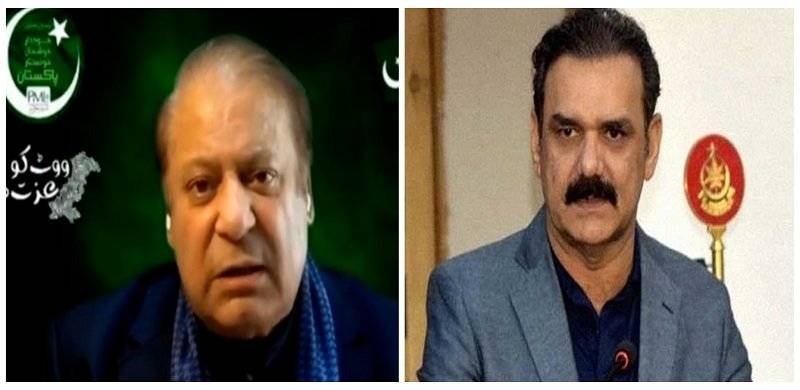
The next four months in Pakistani politics will be eventful or may patently be highly melodramatic in content and tenor. The tone for the future events or melodrama has been set by former prime minister Nawaz Sharif, who, on the one hand, boldly accused the present military top brass of conspiring to oust him from power, while on the other hand, showed extreme warmth for Pakistani soldiers who “lay down their lives for the defense of the country”.
This would practically be described as an attempt to differentiate between the top brass—which is composed of a handful of generals, and the vast numbers of troop— hundreds of thousands in number—for whom the former prime minister expressed love, respect and warmth. This is an old tactic, which most of Pakistani politicians, who had directly launched a verbal assault on the military's involvement in politics, had used in the past. This tactic, however, has little practical utility for the political leader in the face of the highly disciplined nature of Pakistani military’s rank and file. There have been very rare cases of in-subordination in Pakistani military on political grounds. And Nawaz Sharif is apparently experienced enough to already know that this won’t make much of a dent in military top brass’s armor.
Sharif's recent assertions, however, have made it abundantly clear that his target are clearly present army chief, General Qamar Javed Bajwa and present DG ISI,Lt General Faiz Hameed, whom, he accuses of masterminding his ouster and imposing an electoral defeat on him in 2018 parliamentary elections. In the video message available on the internet Nawaz Sharif clearly demands accountability of military top brass for bringing “A mad man” (reference to Imran Khan) into power”.
This is new and rare in Pakistani politics—demanding the accountability of the establishment.
Nawaz Sharif’s popularity has been on the rise in the last two years as it clearly shown by the public opinion polls conducted by opinion poll agencies. This is a second rare of Pakistani politics—that a leader who is in confrontation with the military is becoming popular in Central and Northern Punjab—two regions of the country where the military holds sway over public opinion since the creation of Pakistan. Central and Northern Punjab have also been the recruiting ground of Pakistani military. In the past, leaders who have opposed the military were conveniently deprived of their popularity and they were sent into political wilderness by the country's powerful military. Benazir Bhutto’s situation in the wake of 1996 ouster from power is a case in point—she simply lost Punjab after 1996.
It would not be an exaggeration to suggest that Pakistani military has fan-following among middle classes of Central and Northern Punjab and anybody opposing the military would have to face the wrath of Punjabi middle classes. What exactly are the dynamics of Nawaz Sharif’s popularity while he has launched a frontal attack on the military top brass could not be explained simply through anecdotal evidence. There has to be field research to understand this dynamics.
Apparently, however, Nawaz Sharif would be facing a moral crisis as he proceeds with his frontal attack on the military. He is a convict and fugitive of law and would be facing a crisis of morality while criticizing the military top brass. An apparent commitment to morality is something Pakistani political class has been adhering to as a principle in the post-Musharraf period. How Nawaz Sharif would explain his act of evading law could be morally embarrassing for him in his campaign to mobilize his Punjabi middle class constituency.
Will he surrender before the law and courts in the end? Or will he confront and take on the whole system? “Judiciary, military and investigating arms of the state all have wronged me and now I will confront the whole system” is this going to be his stance? This would not be a very popular stance among the middle classes. But this position will deprive him of all possibility to stage a comeback in Islamabad. Nawaz Sharif and military share the same following in Punjab—Punjabi urban middle classes. What will be the outcome of this confrontation? Very difficult to predict at this stage. But one thing is for sure: Pakistani political system will change beyond recognition after this melodrama.
